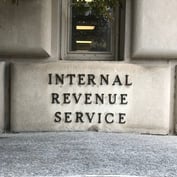The Internal Revenue Service (IRS), an arm of the U.S. Treasury Department, has started the official process of implementing the process of collecting the health plan fees that are supposed to fund a new Patient-Centered Outcomes Research Trust Fund.
The IRS is preparing to publish a notice of proposed rulemaking for the Patient-Centered Outcomes Research Institute (PCORI) funding mechanism Tuesday in the Federal Register.
The IRS is developing the regulations to carry out sections 4375 and 4376 of the Internal Revenue Code (IRC). The drafters of the Patient Protection and Affordable Care Act of 2010 (PPACA) created the PCORI provisions in an effort to create an entity that could sponsor, collect, organize and distribute research comparing the costs and benefits of various medical treatment options.
The Supreme Court is considering the constitutionality of several PPACA provisions. PPACA opponents are working in Congress to repeal the act, and more anti-PPACA suits are moving through the federal court system at the district court and appellate court level.
If PPACA takes effect on schedule and works as drafters expect, a health insurer or a self-insured group health plan will have to pay the government a $2 PCORI fee per covered life for each policy year ending on or after Oct. 1, 2013, and before Oct. 1, 2019. Insurers and plans would have to pay a $1 PCORI fee per covered life for policy years ending on or after Oct. 1, 2012, and before Oct. 1, 2013.
The government would exempt government plans, such as Medicaid plans, from having to pay the PCORI fee.
The fee could generate a total of about $2.6 billion in PCORI funding between now and 2019, according to the Congressional Budget Office.
To dispel fears that the “comparative effectiveness research” (CER) institute will be a care rationing “death panel,” PCORI is supposed to influence health care solely by publishing its findings and letting physicians and hospitals decide for themselves how to use the information. Insurers are not supposed to use PCORI’s work as the basis for making specific coverage decisions.
The IRS collected interested parties’ views on the PCORI trust fund fee in June 2011, when it issued IRS Notice 2011-35. In the notice, IRS officials asked how the PCORI fees should be calculated and paid, and what rules and safe harbor provisions might be needed.
IRS officials say in the preamble to the proposed regulations that they have used the comments to shape their approach to handling the PCORI fee.








 April 13, 2012 at 09:40 AM
April 13, 2012 at 09:40 AM










